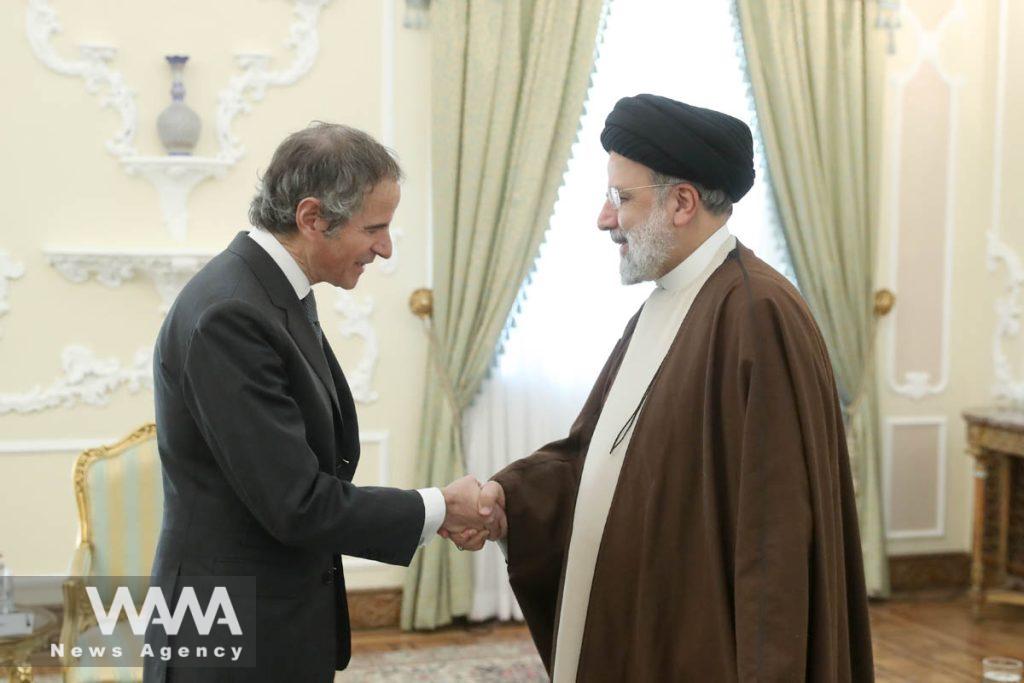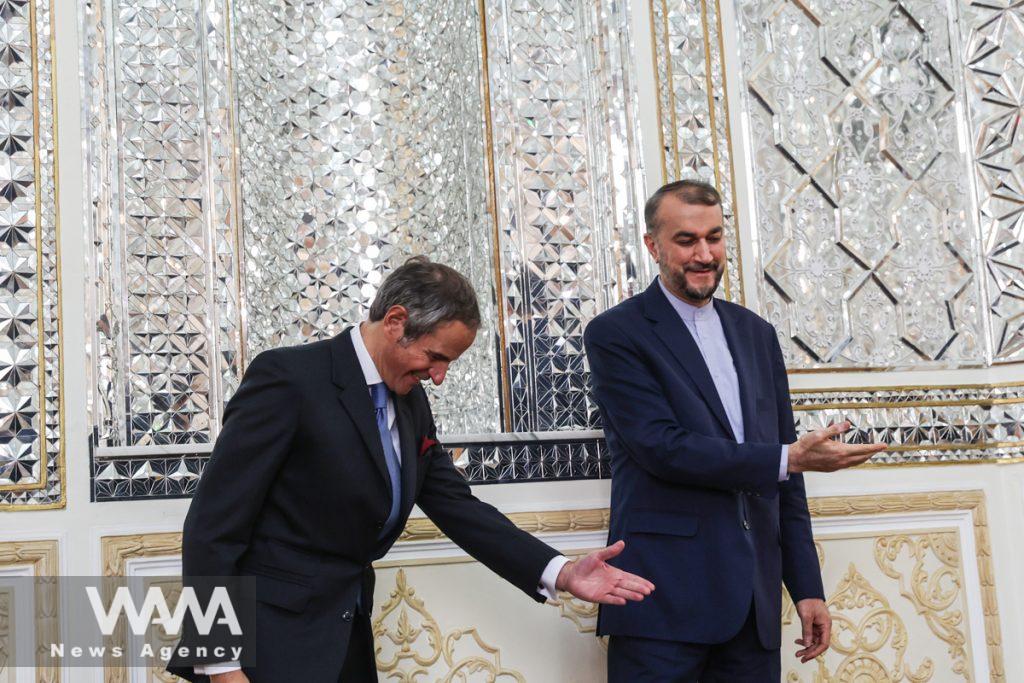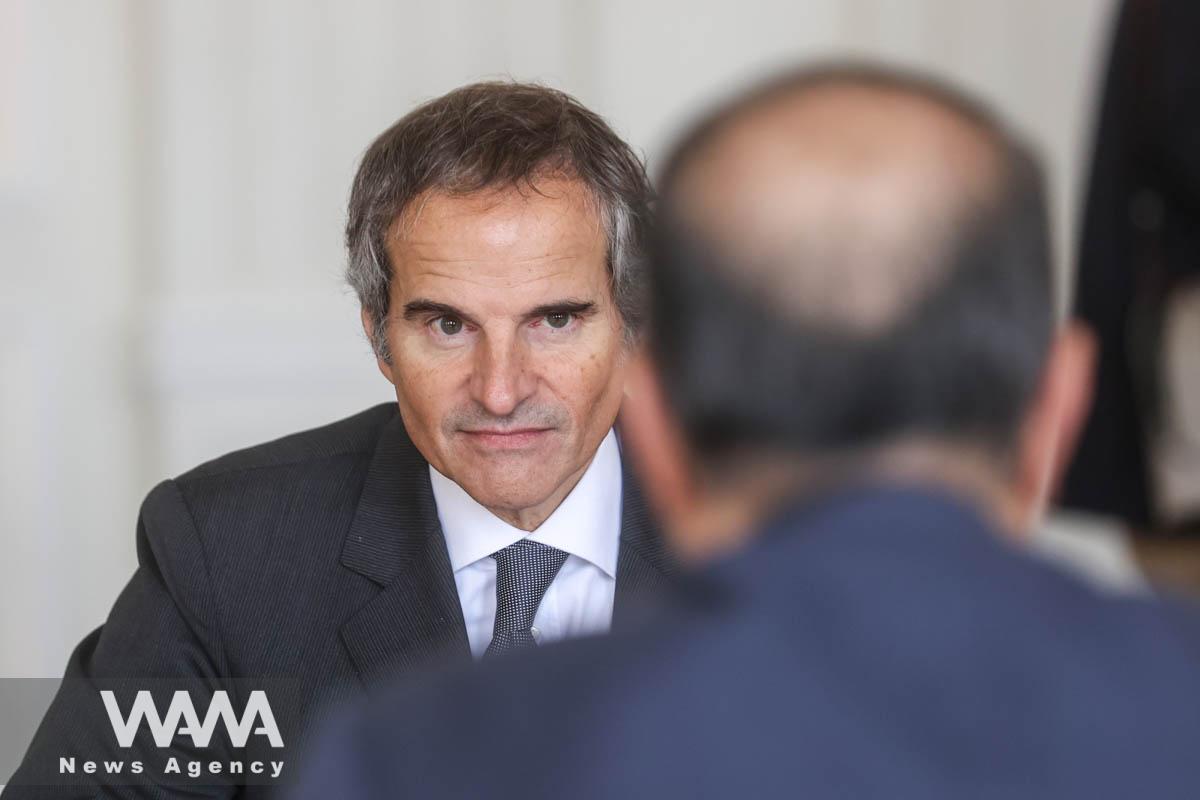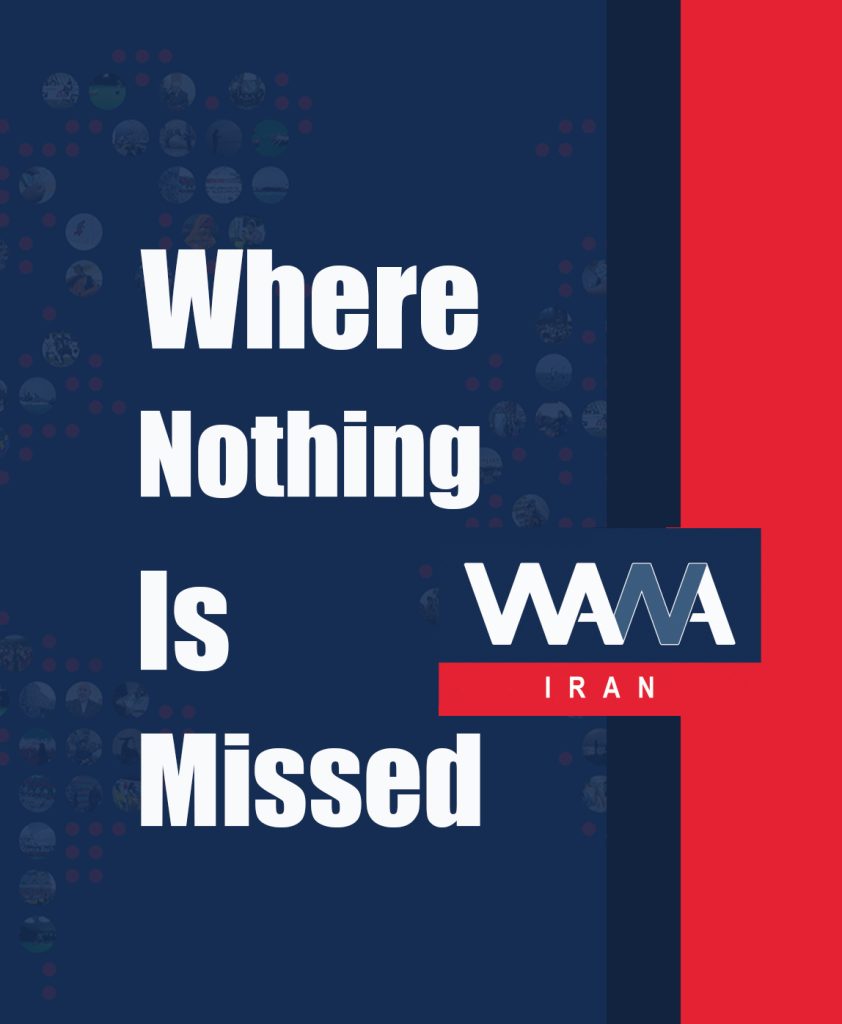Grossi in Tehran: What’s His Agenda?
WANA (May 5) – The majority of Iranian nuclear and political experts believe that Rafael Grossi, the Director-General of the International Atomic Energy Agency (IAEA), is “the West’s choice for further curbing Iran’s nuclear growth.”
Tehran has never trusted Grossi and considers him a weaker director-general lacking independence than his predecessors at the IAEA.
Grossi’s dual policies and peculiar remarks on Iran’s nuclear stance have led to a situation where fewer people in Iran take the statements of the IAEA Director-General seriously. Most of Grossi’s assertions need more substantive technical and legal weight.
Numerous claims made by Grossi regarding Iran’s nuclear activities have been repeatedly dismissed by Tehran, which sees these claims as politically motivated injections by the West. Consider these statements made by Grossi :
- Grossi: “Since the failure of nuclear negotiations, Iran has significantly moved closer to building a nuclear bomb.” Tehran believes the IAEA has no verified evidence for this claim.
- Grossi: “No country without having a desire to nuclear bomb enriches uranium up to 60%. Iran has produced enriched uranium beyond what it needs for building a nuclear bomb.” Iran in its second step of reducing commitments under the JCPOA, increased its enrichment level to 60% at the Natanz site in response to the unilateral US withdrawal from the JCPOA and Europe’s procrastination in fulfilling its commitments, as well as in reaction to the sabotage acts of the Zionist regime.
- Grossi: “90% enrichment is necessary for making a nuclear bomb, but 60% enrichment is almost the same as 90% enrichment!” Iran’s Supreme Leader, Ayatollah Khamenei, repeatedly stated, “Iran’s enrichment limit will not be 20%, and the country will act as necessary and required.” The Iranian leader, in the same speech delivered to the Assembly of Experts, considered “Islamic thought and principles” as the main obstacle to the production of any weapon, whether nuclear or chemical, and further stated that “if the Islamic Republic decided to acquire nuclear weapons, neither the Zionist regime nor bigger than this regime (the US) could prevent it.”
- Grossi: “The JCPOA no longer works. We must consider that we are not in 2015 (the time of the JCPOA’s conclusion) anymore; therefore, this agreement needs to be replaced with another agreement.” Iran’s Foreign Minister’s response to this claim is astute; he says the JCPOA is “extraordinary.” “We say if the White House is sincere and serious, it should operationalize the same document that has been worked on for months and years. But whether it is expected that for years to come, the basis of our diplomacy with these countries will only be a document called the JCPOA, it will definitely not be like this.” Iran’s Foreign Minister raised this issue in September 2023.
- Grossi: “The Islamic Republic is increasing its nuclear capabilities, and despite the active inspections by the International Atomic Energy Agency, these inspections are not enough.” Iran’s leader profoundly believes that the issue of deviation from the JCPOA and nuclear weapons is an excuse for the Agency and the West. “They are even opposed to our access to conventional weapons because they want to take power components away from Iran,” said Ayatollah Khamenei.
Experts believe that the level of inspections by the Agency into Iran’s nuclear activities has gone beyond the soft and complex laws and regulations of the IAEA.
Grossi and US-European officials have shown that they intend to create the groundwork for Iran’s primary and secondary inspections (unrestricted temporal-spatial inspections) in the present and future with an open-eyed approach.
The Atomic Energy Organization of Iran seeks to continue cooperation with Grossi and the IAEA based on its laws and to advance its nuclear technology. This collaboration has never been completely severed, although it has had its ups and downs. Tehran is unwilling to allow IAEA inspectors to inspect beyond defined frameworks without obtaining specific concessions.
The White House, the European Union, and the International Atomic Energy Agency are undecided between two options, “JCPOA reform” or “official withdrawal from the JCPOA,” as the year 2025 (the time set for the activation of the sunset clause) approaches.

Iranian President Ebrahim Raisi meets with International Atomic Energy Agency (IAEA) Director General Rafael Grossi in Tehran, Iran, on March 4, 2023. Iran’s President Website/WANA (West Asia News Agency)
Potential Goals of Grossi’s Trip to Iran – Playing in the Arena of Western Politics
Grossi pursues several important overarching goals concerning the JCPOA and nuclear negotiations with the Islamic Republic of Iran. These goals include:
- A) Iran’s unilateral return to nuclear commitments outlined in the JCPOA without lifting sanctions against the Islamic Republic of Iran.
- B) Expansion of the International Atomic Energy Agency’s inspection regime aimed at Western security penetration into sensitive sites in Iran.
- C) Absolving America of blame for its unilateral withdrawal from the JCPOA and creating a safe margin for European trilateral diplomacy regarding the issuance of political and non-legal statements against Iran.
- D) Preventing Iran’s legal and operational reliance on the sunset clause in UN Security Council Resolution 2231.
- E) Preventing the conclusion of a “confidence-building” agreement with Iran, which would prevent Iran from benefiting from the advantages of sanctions relief.
Grossi’s involvement in the confrontation with Iran is entirely transparent yet simultaneously complex. Identifying Grossi as an independent figure in this equation is considered a pure error. He is tasked with operationalizing the age-old idea of the White House officials (Iran’s unilateral return to the JCPOA without lifting sanctions).
History of the Iran Nuclear Deal (JCPOA)
The Iran Nuclear Deal, officially known as the Joint Comprehensive Plan of Action (JCPOA), was signed in 2015 between Iran and the P5+1 group of countries (the United States, United Kingdom, France, China, Russia, and Germany). The agreement aimed to curb Iran’s nuclear program in exchange for lifting economic sanctions imposed on Iran. However, the JCPOA faced challenges, including the unilateral withdrawal of the United States in 2018 and subsequent tensions between Iran and the remaining signatories over compliance and enforcement.

International Atomic Energy Agency (IAEA) Director General Rafael Grossi meets with Iran’s Foreign Minister Hossein Amir-Abdollahian in Tehran, Iran, November 23, 2021. Majid Asgaripour/WANA (West Asia News Agency)













User comments